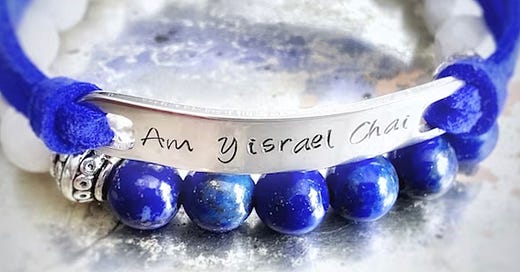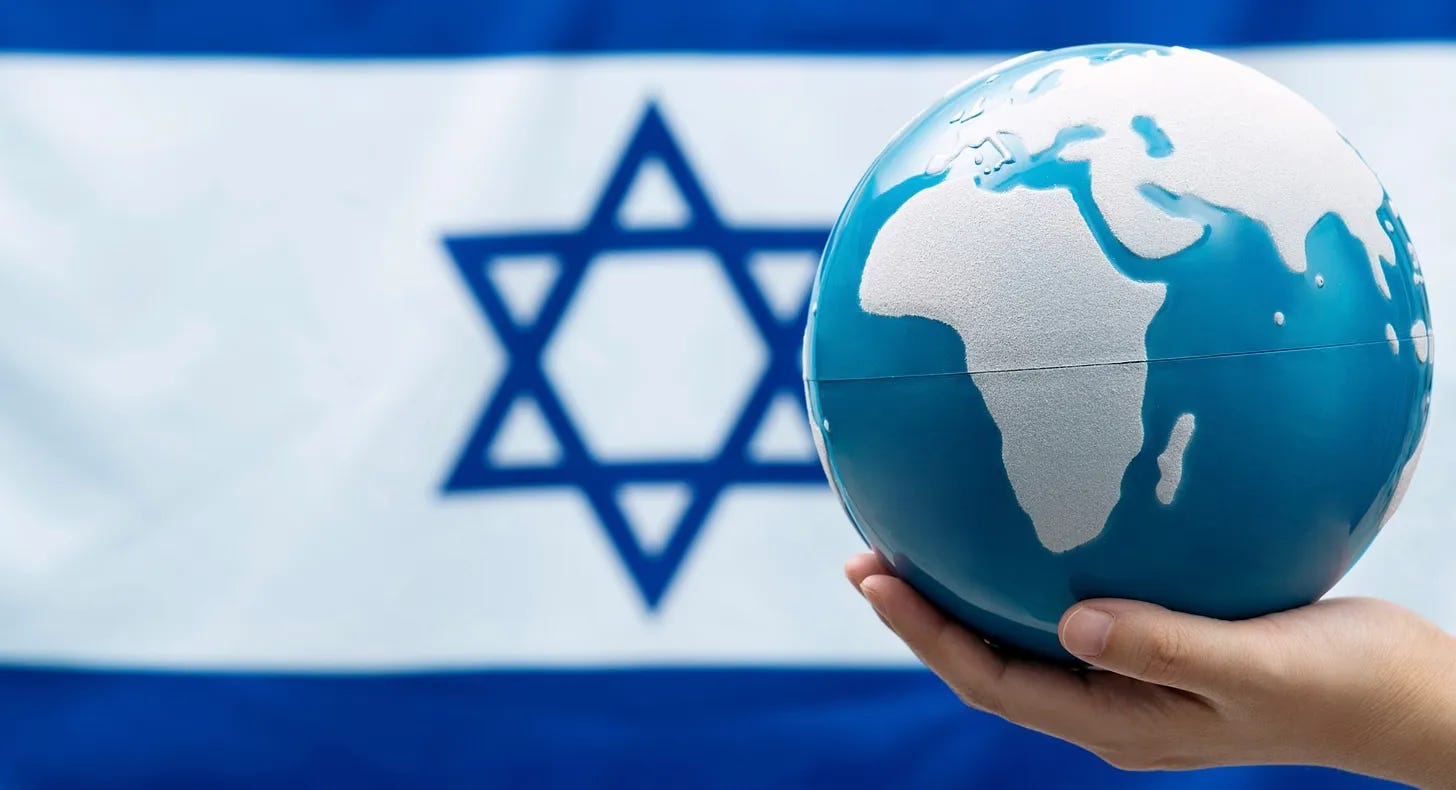Parenting During a War: One Family's Two-way Teachable Moment
"The fact that we’re on opposite sides of this conflict isn’t lost on me, but we have an opportunity to support one another — not compete with who is mourning more righteously."
By Allison Task
I’m fascinated by how my elementary school-age kids are processing the war in Gaza.
When they play pick-up soccer with friends after school, the two teams are called “The Israelis” and “The Palestinians.” It makes me cringe — and yet I get that they're trying to process with the tools they have.
There’s content that we as parents can teach, and I’ve been deliberate about sharing some news stories with them, but not others. My children have come to decide that Israel is fighting against Hamas, and that what’s happening to the Palestinians is not right. And we don’t celebrate it. But history is complex and terrorism is awful. I share about all of the hostages, and those who’ve died, especially the ones who are their age and younger so they can relate and feel empathy. Helping children process is part of our job as parents.
And then there are the “teachable moments” that come without a syllabus or news articles. It’s just how we respond to life. One of these moments happened at our local pharmacy when we got our flu shots. Mohammed, or “Mo,” is the owner of the store. My kids have decided that he gives the best shots, so he’s their chosen immunizer.
Being selected as the one to give shots is a big deal. Mo has earned my kids’ trust, makes them feel safe, and of course, gives lollipops. By choosing him, they have agency in a rather unpleasant part of their lives. Choosing who gets the honor of being the injector helps them to develop relationships.
Suffice it to say, Mo is beloved in our household.
When I filled out our immunization paperwork, I saw a small sign that explained Mo’s store would be closed the next day for a protest against the war in Gaza. The protest was on behalf of the 8,000 Palestinian civilians who had been killed by the Israeli military, and Mo was joining. That day I saw our always smiling Mo carrying pain.
I looked at my son’s “Am Yisrael Chai” bracelets, in support of Israel, and took a beat. I thought about the pain Mo was feeling, and the pain that we were feeling as a Jews.
In that moment, I didn’t want to bring Mo any more pain.
I looked at my 10-year-old son, and pointed to the sign. I said “Mo is closing tomorrow to recognize the people who’ve been killed in Gaza.” He looked at me with saucer eyes. And I pointed to my son’s bracelets. It wasn’t meant to be instructive; I was processing in real time. I was wondering how we should handle this. He made the choice; he removed the bracelets, put them in his pocket and looked back at me.
I had guilt for a moment. Was I being timid about being Jewish, the way I’d hide my Jewish star necklace in my shirt when I was with certain groups of people in college (or meeting certain boyfriends’ parents after college?). No, it wasn’t that. It was different. I wasn’t hiding who I was, I just didn’t want to be insensitive to the pain our friend was carrying.
As a coach, I use the concept of “ring theory” with my clients. Ring theory is a psychological paradigm that explains when a person is in crisis, or a traumatic situation, emotional energy and support must move toward the individual in the center of the crisis. For example: If a person has cancer, they’re in the center of the ring (think planetary orbits). The next ring contains their caregivers. The next ring is for close friends and family, the next ring is coworkers, and so on. Energy and support always moves from the outer rings toward the center.
Mo and I are each having our own crises. And I’ll put support towards the families of hostages, and those killed in Israel. I’ll put support towards my kids’ Israeli Hebrew school teachers. These folks are closer to the crisis than I am. And my non-Jewish friends will give me their care, love and support.
In that moment, we stood with Mo in the outer rings, recognizing that he was mourning the loss of eight thousand lives. In that moment we were not the mourners, we were the supporters. We were in his shop, and we were supporting him.
As I believe he would do for us.
Now the fact that we’re on opposite sides of this conflict isn’t lost on me, but we have an opportunity to support one another — not compete with who is mourning more righteously.
What astonished me is that my son understood this. We discussed it after we left the drug store and he intuitively, instinctively got it. I go to my training to remember “ring theory,” as I second-guess and intellectualize my choice. But in the moment, it represented a felt sense of empathy and compassion that I was acting upon: Here’s the sign, son. And there’s your bracelet. What do we do?
My son knew what to do. I didn’t ask him to take off the bracelets, but he felt something from his beloved Mo, and he wanted to stand with him. Just as he stands with his Hebrew school Morahs when they are in pain.
We each take turns at the center of the ring, and in life, God-willing, we have many opportunities to give support and love to those we love — while they are taking their turn in the center.
Allison Task is a Life & Career Coach and the bestselling Author of Personal (R)evolution.
Free subscriptions to JEWDICIOUS are available until the end of 2023!
From unpacking history and politics to navigating the nuances of family and personal relationships to finding the human angle on sports and entertainment — plus our unsparing take on what’s happening in the Jewish world — the canvas at JEWDICIOUS is limitless! JOIN US!!





